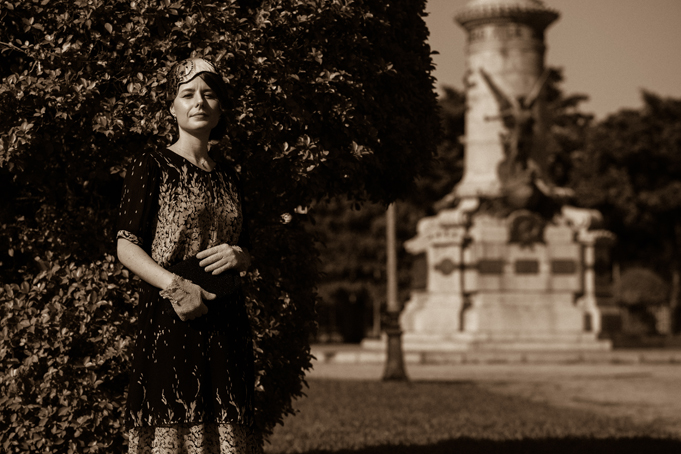

Paris Square is a thriller that shows the conflict between a Portuguese psychoanalyst, Camila, who came to Brazil to develop a research on violence, and her patient, Gloria, in a Therapy Center of a Brazilian university (UERJ). Gloria is an elevator attendant at the university and has a very difficult history of violence: raped by her father, she has only one brother, who always protected her, but was also drug lord at the slum. The film shows a transfer relationship to the reverse, where the fear of the other ends up dominating the plot.
Gloria is an elevator attendant at UERJ. She spends her days in an elevator, taking students and teachers up and down, taking them to their realities, very different from her own life. She was raised and lives today in Morro da Providência. Daughter of an abusive father, when she is freed from him, falls into the hands of a brother, a drug lord who, even in prison, is still present and exerts enormous influence on Gloria's life.
Camila is a young Portuguese psychoanalyst who is in Brazil for post-graduate studies on violence at UERJ, where she starts assisting Gloria in her office. Camilla is foreign and displaced amidst the chaos of an unequal, noisy, hostile, constantly changing city, lost in a dynamic that she still does not understand well, but interests her very much. Like Gloria, Camila also keeps secret parts of her past that brought her to Brazil.
Shuttered in a room, Camila and Gloria begin to develop a relationship of closeness and, yet contained, affection. An initially unlikely bond is established between the two, and in a striking case of countertransference between analyst and analyzed, this bond goes far beyond the office borders.
With intensity and violence, as strong as the crushers breaking the city streets, refurnishing them for the Olympic Games, thoughts on the patient's history hammer the analyst's head. This one, in turn, is no longer the same Gloria: now she mirrors and unconsciously envies Camila's life.
Fear, traumas, action and obsession merge in a game of pleasure and guilt, madness and sanity, construction and deconstruction - from the urban Rio de Janeiro surrounding Camila and Gloria and, above all, from their own lives.

In 1926, as part of a megalomaniac "Agache Plan", that in its entirety was never carried out, which intended to turn Rio into a "Paris", the Paris Square was created, following the classic French landscaping whose great expression is the Palace of Versailles.
In the film, Camila searches for the square where her grandmother also took a photo decades ago. It is the Paris Square, which represents this attempt to transform Rio into another city, as well as the background of the film are the works for the Olympics that once again intend to transform Rio into "another" modern city. Quoting writer Lima Barreto, the great critic of the transformations that occurred in Rio at the beginning of the 20th century:
"Life cannot be a pain, a humiliation of idiot bureaucrats." This quote is found in the exhibition of the character Martim, photographer and boyfriend from Camila in the film, amid photos of destruction / intervention of Rio de Janeiro from different times.
Paris Square, this so-intended Paris piece in the middle of a polluted center - that has nothing to do with our tropical reality - is nevertheless part of our history, as the grandmother of our protagonist and Camila herself may come to do as we make this movie.